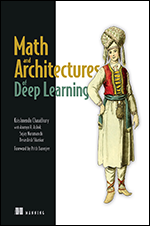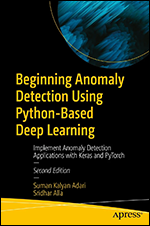Bayesian Methods: Advanced Bayesian Computation Model
Bayesian statistics
| Intermediate
- 11 videos | 51m 26s
- Includes Assessment
- Earns a Badge
This 11-video course explores advanced Bayesian computation models, as well as how to implement Bayesian modeling with linear regression, nonlinear, probabilistic, and mixture models. In addition, learners discover how to implement Bayesian inference models with PyMC3. First, learn how to build and implement Bayesian linear regression models by using Python for machine learning solutions. Examine prominent hierarchical linear models from the perspective of regression coefficients. Then view the concept of probability models and use of Bayesian methods for problems with missing data. You will discover how to build probability models by using Python, and examine coefficient shrinkage with nonlinear models, nonparametric models, and multivariate regression from nonlinear models. Examine fundamental concepts of Gaussian process models; the approaches of classification with mixture models and regression with mixture models; and essential properties of Dirichlet process models. Finally, learn how to implement Bayesian inference models in Python with PyMC3. The concluding exercise recalls hierarchical linear models from the perspective of regression coefficients, and asks learners to describe the approach of working with generalized linear models, and implement Bayesian inference by using PyMC3.
WHAT YOU WILL LEARN
-
Discover the key concepts covered in this courseDemonstrate how to build and implement bayesian linear regression models using pythonList the prominent hierarchical linear models from the perspective of regression coefficientsDescribe the concept of probability models and illustrate the use of bayesian methods for problems with missing dataDemonstrate how to build probability models using pythonDescribe non-linear and non-parametric models from the perspective of coefficient shrinkage and multivariate regression
-
Specify the fundamental concepts of gaussian process modelsRecognize the approaches of using mixture models for classification and regressionDefine and list the essential properties of dirichlet process modelsDemonstrate how to implement bayesian inference models in python with pymc3Recall hierarchical linear models from the perspective of regression coefficients, describe the approach of working with generalized linear models, and implement bayesian inference using pymc3
IN THIS COURSE
-
1m 45s
-
4m 7sIn this video, you will learn how to build and implement Bayesian linear regression models using Python. FREE ACCESS
-
3. Hierarchical Linear Model8m 21sAfter completing this video, you will be able to list the prominent hierarchical linear models from the perspective of regression coefficients. FREE ACCESS
-
4. Probability Model7m 22sUpon completion of this video, you will be able to describe the concept of probability models and illustrate the use of Bayesian methods for problems with missing data. FREE ACCESS
-
5. Building Probability Models4mIn this video, you will learn how to build probability models using Python. FREE ACCESS
-
6. Non-Linear Model6m 2sAfter completing this video, you will be able to describe non-linear and non-parametric models from the perspective of coefficient shrinkage and multivariate regression. FREE ACCESS
-
7. Gaussian Process3m 23sAfter completing this video, you will be able to specify the fundamental concepts of Gaussian process models. FREE ACCESS
-
8. Mixture Model4m 28sAfter completing this video, you will be able to recognize the approaches of using mixture models for classification and regression. FREE ACCESS
-
9. Dirichlet Process Model5m 14sIn this video, you will define and list the essential properties of Dirichlet processes. FREE ACCESS
-
10. Bayesian Modeling with PyMC33m 36sIn this video, you will learn how to implement Bayesian inference models in Python using PyMC3. FREE ACCESS
-
11. Exercise: Implement Bayesian models3m 8sUpon completion of this video, you will be able to recall hierarchical linear models from the perspective of regression coefficients, describe the approach of working with generalized linear models, and implement Bayesian inference using PyMC3. FREE ACCESS
EARN A DIGITAL BADGE WHEN YOU COMPLETE THIS COURSE
Skillsoft is providing you the opportunity to earn a digital badge upon successful completion on some of our courses, which can be shared on any social network or business platform.
Digital badges are yours to keep, forever.








